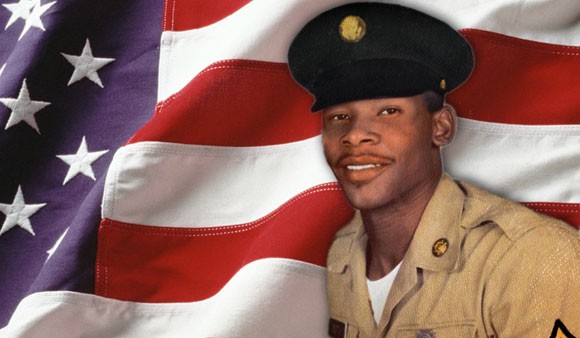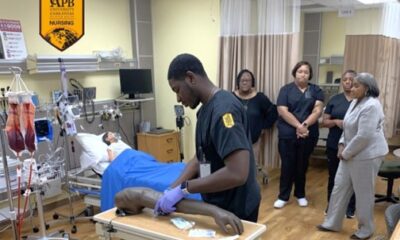Culture
Home of the Brave

African Americans have a long and courageous history as members of the nation’s Armed Forces. From the Colonial history to present day, there have been African Americans willing to fight and die for their homeland.
During the Revolutionary War in November 1775, Lord Dunmore, the Royal Governor of Virginia, signed a proclamation to emancipate slaves who ran away and fought for the British. Several months later George Washington lifted the ban on Blacks enlisted in the Continental Army. There were several all-Black units located in Rhode Island and Massachusetts. Slaves who fought in lieu of their masters were promised freedom. Two of the most famous African American Patriots were Peter Salem and Salem Poor.
The Civil War provided African Americans an opportunity to take a personal stand against slavery. Many brave men fled their plantations to join the Union Army. In some states as the Union Army moved through the area, slaves ran away from plantations to follow the Union soldiers and the men, women and children were declared “war contraband.”
The record books count 186,097 African Americans who served for the Union Army during the Civil War, including free Blacks and runaway slaves. The Confederacy engaged in a protracted debate over arming, but it did use slaves for labor during the war.
As the country became involved in wars after the Civil War and through World War I, segregation remained a part of the Armed Forces. The racism did not deter African Americans from serving to protect the country and its citizens.
In 1948 President Harry S. Truman signed Executive Order 9981, leading to the desegregation of all U.S. Armed Forces. The country was involved in World War II and African Americans were enlisted in great numbers, but there was racial tension and poor treatment. Troops were separated in the canteens, parades, and transportation. The President’s Executive Order made it illegal, per military law, to make a racist comment.
Excellent service by African American servicemen and women cleared the way for President Truman’s decision. Famous segregated units such as the Tuskegee Airmen and 761st Tank Battalion and the distinguished, although less well-known, 452nd Anti-Aircraft Artillery Battalion proved they were more than capable for fighting for America.
During World War II African Americans started ascending in the military hierarchy. Benjamin O. Davis, Jr. served as commander of the Tuskegee Airman during the War. He became the first African American General in the United States Air Force. In 1944 the Golden Thirteen became the Navy’s first African American commissioned officers.
Jesse L. Brown became the U.S. Navy’s first Black aviator. In 1948 he was killed when his plane was shot down. He was unable to eject. A fellow squadron mate, who was white, landed his plane near Brown and tried to extricate Brown. Unfortunately, he could not and Brown died of his injuries. Thomas Hudner was awarded the Medal of Honor for his courageous effort to save Brown. The Navy honored Jesse Brown by naming an escort ship after him, the U.S.S. Jesse L. Brown.
There were tremendous accomplishments made by African Americans during the Vietnam War. Thousands distinguished themselves in battle with 20 receiving the Medal of Honor. But, many young African American men were drafted and died in the war at rates slightly higher than their percentage of the total population.
The highest-ranking African American in the history of the Armed Forces is General Colin Powell. In 1989 President George H.W. Bush appointed General Powell to the position of Chairman of the Joint Chiefs of Staff, making him the highest-ranking officer in the United States as well as the first and only African American to hold that position.
In today’s all-volunteer Armed Forces, the numbers of African Americans who enlist have risen dramatically. Military service provides career opportunity, an avenue to travel, and funding for a college education.

-

 Featured12 months ago
Featured12 months agoArkansas Sheriff Who Approved Netflix Series Says He Stayed ‘In His Lane’
-

 HBCUS12 months ago
HBCUS12 months agoSenator Boozman Delivers $15 Million to Construct New UAPB Nursing Building
-

 News12 months ago
News12 months agoMillions In the Path of The Total Solar Eclipse Witnessed Highly Anticipated Celestial Display
-

 Featured9 months ago
Featured9 months agoCalifornia Is the First State to Create A Public Alert for Missing Black Youth
-

 Featured9 months ago
Featured9 months agoAfrican American Leaders Stay the Course Amid Calls for President Biden To Bow Out of Race
-

 Featured9 months ago
Featured9 months agoThe Debate Fallout Lands on Both Candidates

